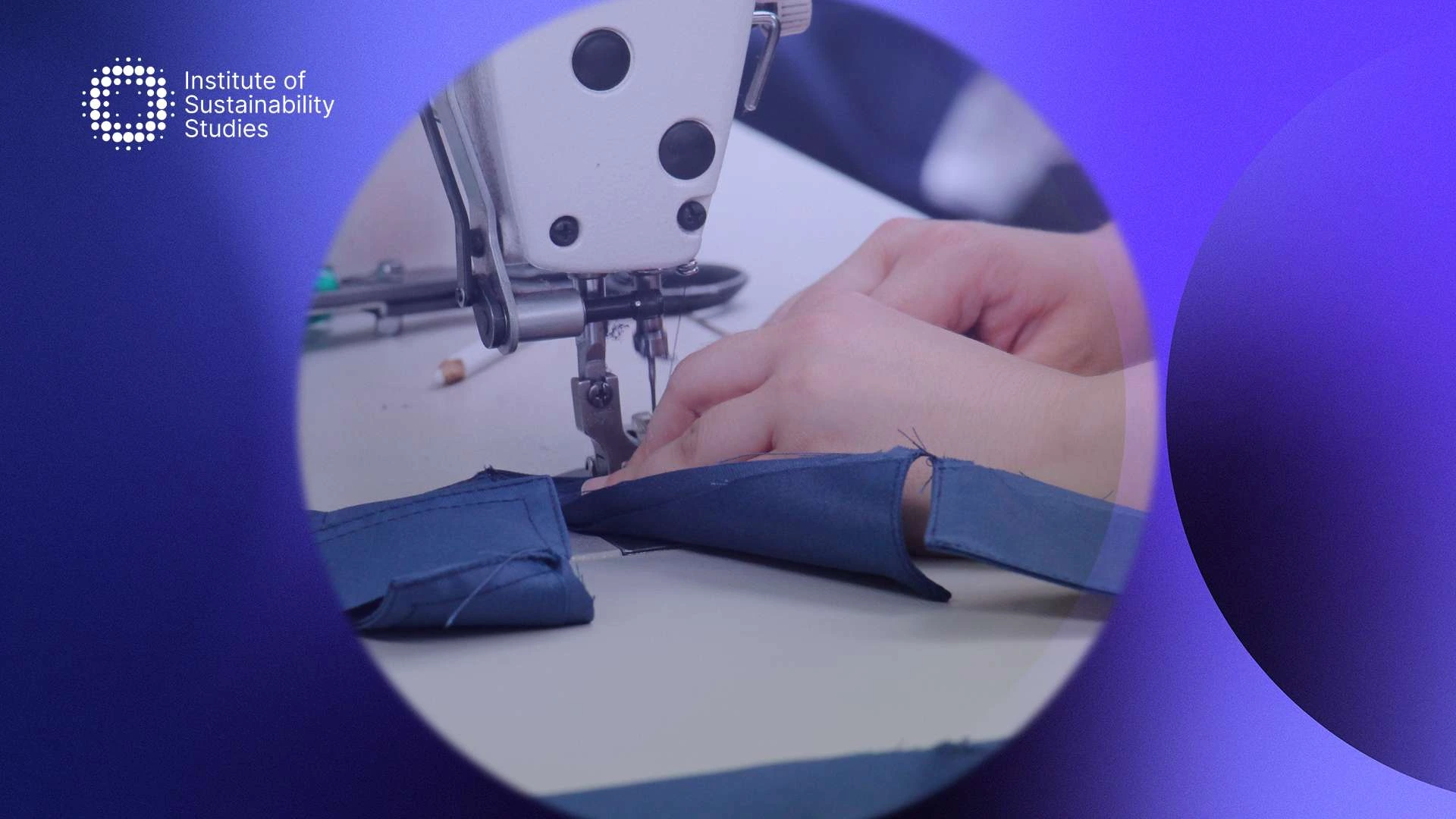The global company touching lives for a better world
Stahl is the world leader in speciality coatings and treatments for flexible materials. Headquartered in the Netherlands, Stahl’s innovative solutions can be found in everyday materials used in countless markets and industries, including apparel, automotive, footwear, luxury goods, and home furnishings, touching the lives of people everywhere.
Being a key player in the speciality coatings and treatments for flexible substrates value chain, Stahl recognises it must deliver more than just better value and performance. The company realises it has a responsibility to contribute to a better world by being a catalyst for a more sustainable and responsible industry.
Micheal Costello, Group Director of ESG, says: “Stahl was founded approximately 100 years ago in Boston by an immigrant who started working in the shoe and leather industry. He essentially discovered he was able to make really nice coatings and finishings for the leather. Over the years, the company has developed to become a multinational coatings company.”
He adds: “We do very specialised chemicals. We don’t do basic chemicals. We do the coatings and treatment chemicals that go into luxury shoes, bags, upholstery, and packaging. We have 14 factories and over 2000 staff.”
Focusing on the numbers of sustainability
Michael’s role means he is responsible for ESG and sustainability. He focuses on performance, measurement, data, and KPIs, as well as presenting the company case at conferences and to customers. This is a new position which was created in 2015. At the time, Michael was running one of the business units in the company, and they asked him to take up the sustainability position because they were hearing from the market, in particular from fashion brands and automotive customers, that sustainability was becoming important.
Michael explains: “Since then, the ESG department has grown, and the influence of sustainability is significant. Everyone in the company is aware of it now, so it is a fairly dramatic change from when we started ten years ago.”
In terms of sustainability initiatives, reporting was the starting point. Michael shares: “Reporting on all the KPIs that we could from the very beginning allowed us to put a baseline on the whole thing like energy, water, waste, safety and emissions. We chose to report on the KPIs that were important for a chemical company too, and what was important for our customers to know about us. Transparency is key.”
Stahl is working hard to reduce the environmental impact of its activities, from emissions to energy use to waste. This is why they focus on research and development on responsible, low-impact innovations. You can learn more about their impact across environment, social, and governance in their 2023 ESG Report.
Prioritising social responsibility and diversity as well as environmental sustainability
Moving forward, Michael adds that the safety and well-being of its employees remain a critical topic for Stahl. He explains: “If there are any accidents in the workplace, we’re being transparent about that and trying to improve it. More recently, DEI has grown in importance. We acknowledged that even though the population of the company was 25 percent female historically, (due primarily to the more physical work of operators at our sites), the 25 percent wasn’t represented in the leadership. Now, that has changed.”
Michael says it is basically about being transparent at the beginning and then making sure that the alignment of their ESG goals is well adapted to their company culture. He says: “I feel it’s really important that if you’re starting out a sustainability activity, or indeed any new area in a company, it must be well aligned with what the company already is in terms of its culture. Understanding that culture is critical for the success of any strategy.”
He adds: “In our case, the company culture is very oriented towards servicing our customers. So, we tried to align our sustainability activities around that customer intimacy model, for example, by providing carbon footprint data to our customers, giving transparent information about the substances contained in our chemicals, and sitting on the boards of influential industry groups to show our community.”
Upskilling in sustainability and challenges that arise from operating sustainably
When Michael took on this role, the topic of sustainability was completely new to him. He had been involved in commercial activities which touched on sustainability, but ten years ago, not that many people were talking about it. Therefore, he recognised there was a need for him to upskill and get educated to fill his new shoes.
Michael shares: “I read a lot of books and went to a lot of conferences in the beginning to learn about climate change and pollution and their impact on the leather and coatings industries. At the time when I took the position, the Paris Climate Agreement had just been signed. We got to understand that agreement as best as we could and decided it must be part of our strategy and should be tied to our activities. That has worked quite well I think.”
The main challenge Stahl faced on its sustainability journey was how to align the company’s strategy and requirements with its sustainability goals. Michael explains: “It was critical that our CEO believed in it and was prepared to spend money on it, and that our shareholders saw that ESG was moving to the top table. It took a few years of selling the idea, but it was also driven by changes in society and the fact that our customers were saying yes, we need you to work on this.”
“Then the whole topic of sustainability just exploded, especially from 2019 onwards. It has got to the point where it is difficult to manage now for many companies – because there are so many aspects that are affecting the way they must report and perform on ESG. Now that companies are evaluated based on ESG performance, it has become much more than just an add-on to the business strategy; it is an essential part of it.”
Michael explains there are a lot of challenges to operating sustainably, but emissions reduction and climate change targets are some of the biggest. While Stahl has made a commitment and has been meeting them, they are now entering a period where they must look at their whole supply chain. The people who supply them with chemicals must act; some of them are, but some are not, and they depend on them. Therefore, it becomes difficult for Stahl to achieve its targets if they do not look at their complete supply chain.
Getting ahead and the importance of supportive leadership
The Corporate Sustainability Reporting Directive (CSRD) is another area Stahl is looking at currently, and they are focused on getting ahead by dedicating resources to it. Michael says: “We appointed an experienced sustainability manager to a full-time CSRD reporting management position to prepare the company for the legislation. This has meant we’ve been able to progress on CSRD reporting, including double materiality and develop new policies, so we’re quite well-positioned to report according to the schedule.”
Michael adds that the CSRD will be transformative in that once they start reporting it, everything in the company will need to be in line with it. Offering guidance to other businesses embarking on their sustainability journeys, Michael says: “Firstly, I believe the top of the company needs to be behind sustainability. If you don’t have that, you’ll always be fighting instead of the other way around. Secondly, the company culture should be well-understood and aligned with whatever sustainability strategy you’re trying to achieve.”
Stahl’s journey in the realm of sustainability is a testament to the power of vision, leadership, and a commitment to continuous improvement. As a global leader in speciality coatings and treatments, Stahl’s story exemplifies how a century-old company can evolve, adapt, and take on the pressing challenges of our time with determination and responsibility. As Stahl continues to lead by example, their story serves as an inspiration for businesses everywhere to take bold steps towards a more sustainable future.
_____
Want to read more business spotlights?
Dedicated to harnessing the power of storytelling to raise awareness, demystify, and drive behavioural change, Bronagh works as the Communications & Content Manager at the Institute of Sustainability Studies. Alongside her work with ISS, Bronagh contributes articles to several news media publications on sustainability and mental health.
- Bronagh Loughlinhttps://instituteofsustainabilitystudies.com/insights/author/bronagh/
- Bronagh Loughlinhttps://instituteofsustainabilitystudies.com/insights/author/bronagh/
- Bronagh Loughlinhttps://instituteofsustainabilitystudies.com/insights/author/bronagh/
- Bronagh Loughlinhttps://instituteofsustainabilitystudies.com/insights/author/bronagh/











